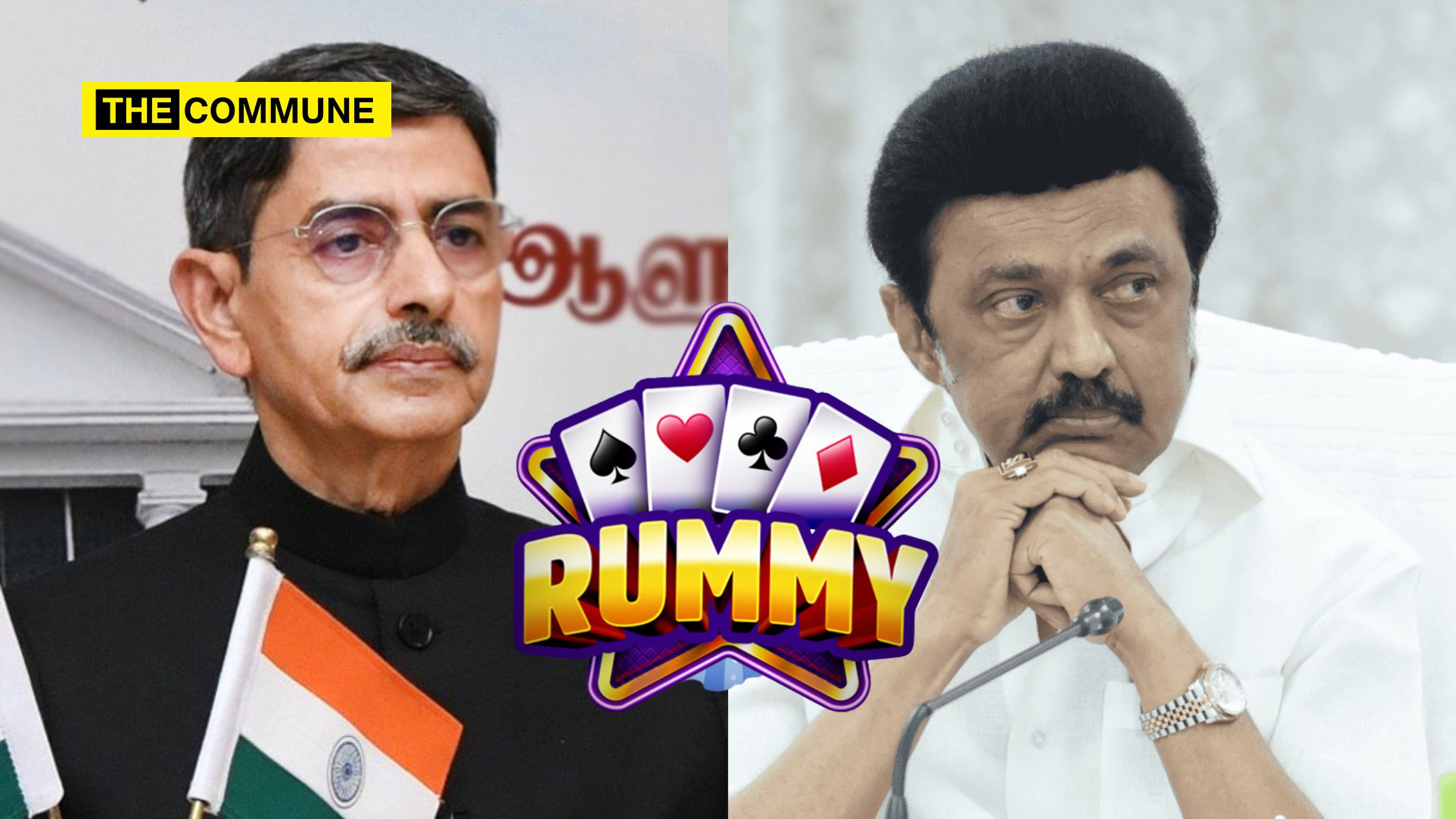
Tamil Nadu Governor RN Ravi has sent back the DMK government’s bill prohibiting online rummy to the Tamil Nadu Council of Ministers for its reconsideration.
Governor Ravi issued an ordinance (prohibiting online gambling, wager-based online games of chance such as Rummy and Poker) on 1 October 2022, and the government issued a gazette notification on October 3. The Tamil Nadu Assembly met for a brief session on October 17 last year, when the Bill was passed.
The Bill was required to be passed by the Assembly as the Madras High Court on 3 August 2021, struck down provisions of the Tamil Nadu Gaming and Police Laws (Amendment) Act 2021 that prohibited wagering or placing bets in cyberspace.
The High Court ruled that such provisions were unconstitutional. The court stated that appropriate legislation in the field of betting and gambling may be passed by the government in accordance with the Constitutional sense of propriety.
Following its passage, the bill was sent to Raj Bhavan for Governor RN Ravi’s assent, and the DMK government has repeatedly urged him to give his assent.
According to reports, the Raj Bhavan has raised two pertinent questions about the bill. One, because several courts, including the Supreme Court, have ruled that ‘rummy is a game of skill’ and thus cannot be classified as gambling, and two, whether the Tamil Nadu government is the competent authority to ban something in the cyberspace.
Game Of Skill Vs Game Of Chance:
Horse racing is a game of skill (though there is an element of winning or losing money) because it is determined by the horse’s abilities and the jockey’s skills. The Supreme Court ruled in 1996 that winning a race requires skill, so horse racing is legal.
A game of chance occurs when the outcome is heavily influenced by a randomising device. Roulette is a game of chance. You can choose the numbers and colours. However, the outcome is determined by where the ball falls at random in the roulette wheel. It does not require any skill from anybody.
Online Rummy In India
Betting and gambling are considered State subjects under the Constitution, and each State has sole legislative authority to enact laws governing betting and gaming within its borders. Certain Indian states have enacted their own legislation to regulate betting and gaming within their borders (“State enactments”), while others have accepted the Public Gambling Act of 1867. (PGA).
Games where the element of skill outweighs the element of chance are exempted under Section 122 of the Public Gaming Act. The so-called “dominant factor test” has been employed by Indian courts to determine whether a game is one of skill or chance. This criterion defines a game of “mere skill” as one in which the element of skill determines the outcome of the game the most.
The jurisprudence underlying the gambling and betting legislation has developed as a result of numerous judicial decisions. In R.M.D. Chamarbaugwalla v. Union of India, the Supreme Court interpreted the words “mere skills” to include games based on a preponderance of skill and established that competition involving a substantial degree of skill will not fall under the category of “gambling,” even if an element of chance is present.
The Supreme Court stated that whether a game is based on chance or skill must be determined on a case-by-case basis. Following the logic of the Chamarbaugwalla case, the Supreme Court in State of A.P. v. K. Satyanarayana held that the game of rummy is not entirely based on chance and requires a significant amount of skill. The Supreme Court reached its conclusion based on the fact that the game of rummy requires memorising card falls and that building up rummy requires considerable skill in holding and discarding cards.
In addition to the Supreme Court rulings that Rummy is a game of skill, the logical question is how the state government will control online gaming without the support of the Central government, given that users of online gaming can circumvent government security by using Virtual Proxy Networks (VPNs).
Now this is about saying to people of Tamil Nadu that they (DMK) have banned it, rather than actually banning Rummy to prevent suicide due to financial loss resulting from the game. Without the backing of the Center and a national legislation for regulation, it is practically impossible to ban an online game.
Click here to subscribe to The Commune on Telegram and get the best stories of the day delivered to you personally.




